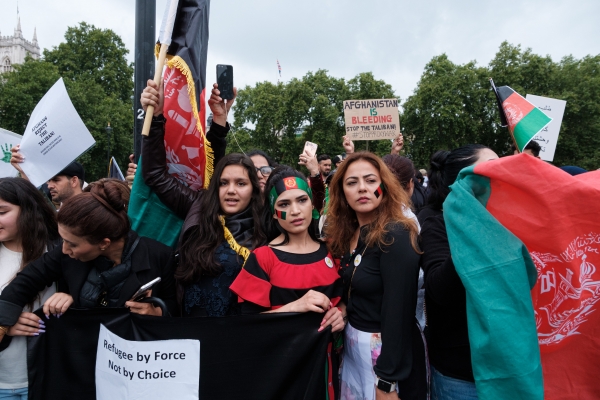Respect for fundamental rights and freedoms is under threat. According to the World Food Programme (WFP), Afghanistan is facing extreme hunger, with an estimated 98 percent of people not consuming enough food. Afghan families are struggling to meet basic needs, leading to desperate measures such as child labour and child marriage.
The United Nations organization (UN) is concerned about the widespread extrajudicial killings, with hangings, beheadings and public displays of bodies. As child recruitment by both the Islamic State Khorasan Province (ISIL-KP) and the de facto authorities carries on, children continue to constitute most civilian victims killed or injured by unexploded ordnance.
Since the Taliban takeover last August, Afghanistan has rolled back women’s rights and media freedom. When it comes to the right to education, livelihoods and participation, women and girls face serious discrimination. Some 4.2 million young Afghans are out of school and 60 percent of them are girls. Women are largely banned from working, except for some teachers, health workers and non-governmental organization (NGO) staff. The absence of female teachers is felt most severely in those locations where girls are only allowed to be taught by women. In total, the UN has estimated that prohibiting women from working will contribute to an immediate economic loss of up to $1 billion.
Civil society is constantly under attack: at least eight activists and two journalists have been killed, many others have been injured, and nearly 60 apparently arbitrary detentions, beatings, and threats to activists and journalists have been attributed to the de facto authorities. “The safety of Afghan judges, prosecutors, and lawyers – particularly women legal professionals – is a matter for particular alarm,” said the UN Deputy High Commissioner for Human Rights Ms. Al-Nashif, especially due to the convicted prisoners freed by the Taliban.
To know more, please read:
https://news.un.org/en/story/2021/12/1107902
https://edition.cnn.com/2021/12/14/asia/un-alarm-afghanistan-killings-intl/index.html
Author: Antonella Candiago; Editor: Xavier Atkins







